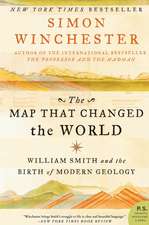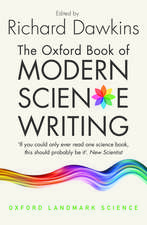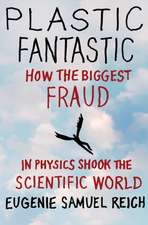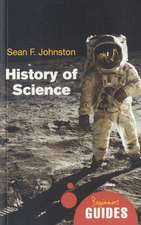The Reception of Isaac Newton in Europe: The Reception of British and Irish Authors in Europe
Editat de Professor Helmut Pulte, Scott Mandelbroteen Limba Engleză Quantity pack – 17 apr 2019
Din seria The Reception of British and Irish Authors in Europe
- 36%
 Preț: 192.42 lei
Preț: 192.42 lei -
 Preț: 189.28 lei
Preț: 189.28 lei -
 Preț: 192.15 lei
Preț: 192.15 lei -
 Preț: 188.34 lei
Preț: 188.34 lei - 35%
 Preț: 229.75 lei
Preț: 229.75 lei -
 Preț: 193.96 lei
Preț: 193.96 lei -
 Preț: 398.19 lei
Preț: 398.19 lei -
 Preț: 192.99 lei
Preț: 192.99 lei -
 Preț: 190.44 lei
Preț: 190.44 lei - 34%
 Preț: 230.90 lei
Preț: 230.90 lei -
 Preț: 586.90 lei
Preț: 586.90 lei -
 Preț: 190.81 lei
Preț: 190.81 lei - 36%
 Preț: 192.15 lei
Preț: 192.15 lei - 36%
 Preț: 192.42 lei
Preț: 192.42 lei - 44%
 Preț: 1667.84 lei
Preț: 1667.84 lei - 44%
 Preț: 1317.79 lei
Preț: 1317.79 lei - 44%
 Preț: 1317.79 lei
Preț: 1317.79 lei - 44%
 Preț: 1433.99 lei
Preț: 1433.99 lei - 35%
 Preț: 193.18 lei
Preț: 193.18 lei -
 Preț: 192.15 lei
Preț: 192.15 lei -
 Preț: 229.37 lei
Preț: 229.37 lei - 17%
 Preț: 329.44 lei
Preț: 329.44 lei -
 Preț: 1893.83 lei
Preț: 1893.83 lei -
 Preț: 1667.84 lei
Preț: 1667.84 lei - 14%
 Preț: 1471.24 lei
Preț: 1471.24 lei - 36%
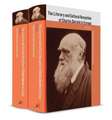 Preț: 1783.83 lei
Preț: 1783.83 lei
Preț: 2166.85 lei
Preț vechi: 3842.75 lei
-44% Nou
Puncte Express: 3250
Preț estimativ în valută:
414.68€ • 431.33$ • 342.34£
414.68€ • 431.33$ • 342.34£
Carte disponibilă
Livrare economică 25 martie-08 aprilie
Preluare comenzi: 021 569.72.76
Specificații
ISBN-13: 9780826479709
ISBN-10: 0826479707
Pagini: 1194
Dimensiuni: 156 x 234 x 28 mm
Greutate: 2.11 kg
Editura: Bloomsbury Publishing
Colecția Bloomsbury Academic
Seria The Reception of British and Irish Authors in Europe
Locul publicării:London, United Kingdom
ISBN-10: 0826479707
Pagini: 1194
Dimensiuni: 156 x 234 x 28 mm
Greutate: 2.11 kg
Editura: Bloomsbury Publishing
Colecția Bloomsbury Academic
Seria The Reception of British and Irish Authors in Europe
Locul publicării:London, United Kingdom
Caracteristici
3 volumes organised by geographical area, subject/theme and by key figures in science and philosophy
Notă biografică
Scott Mandelbrote is Fellow and Director of Studies in History at Peterhouse, University of Cambridge, UK.Helmut Pulte is Chair for Philosophy and History of Science at Ruhr University, Bochum, Germany.
Cuprins
Volume I. Language communities, Regions and Countries: The Geography of NewtonianismList of IllustrationsSeries Editor's Preface Elinor ShafferAcknowledgementsList of ContributorsTimeline: European Reception of Isaac Newton 1642-1900Editor's Introduction Scott Mandelbrote and Helmut Pulte1. The Reception of Newton in the French-Speaking Lands John Bennett Shank2. Newton in the German-speaking Lands Thomas Ahnert3. Newton's Reception in the Low Countries Eric Jorink and Huib Zuidervaart4. The Reception of Newtonian Natural Philosophy in Scandinavia Helge Kragh5. The Reception of Newton in Finland and the Baltic States Maija Kallinen6. Newton in the Iberian Peninsula Antoni Malet7. Newton in Italy Massimo Mazzotti8. The Hungarian Reception of Newton Gábor A. Zemplén9. ?he Reception of Newtonianism in the Greek-speaking Regions of the Eighteenth Century Kostas Gavroglu and Manolis Patiniotis10. Better than a Samoyed: Newton's Reception in Russia Simon WerrettBibliography (Volume 1) Volume II. Themes and Areas of Study: The Content of Newtonianism11. The Reception of Newton's Method of Series and Fluxions in Europe Niccolò Guicciardini12. Newton's Algebra Jaqueline Stedall13. Influence of Newton's Principia on the Development of Continuum Mechanics and Rigid Body Dynamics on the Continent Gleb K. Mikhailov14. Newton's Celestial Mechanics and Gravitational Theory Michael Nauenberg15. The Reception of Newton's Principles of Mechanics and Concept of Force Eric Watkins16. Impact on Methodology Helmut Pulte17. Newton's work in French Mathematics and Mathematical Physics, 1780-1830 Ivor Grattan-Guinness18. The Reception of Newton's Optical Work Alan E. Shapiro19. The Reception of Newton's Theory of Matter and his Atomism Catherine Wilson20. Newton, Newtonianism, and the Roles of Experiment Friedrich Steinle21. The Persistence of Mechanical Imagery: Electricity and Magnetism in a Newtonian World Roderick W. Home22. Chemistry and Alchemy Lawrence M. Principe23. The Impact of Newton on Biology on the Continent in the Eighteenth Century Peter McLaughlin24. Newton and the Evidences of the Christian Religion Scott Mandelbrote25. Newton in Poetry Simone De Angelis26. Newtonian Biography 1727-1822 Robert IliffeBibliography (Volume 2)Volume III. Rivals, Friends and Critics: Individual and Group Responses to Newtonianism27. Newton's Impact on the Enlightenment Mordechai Feingold28. The Popularization of Newtonianism in the Eighteenth Century Andreas Kleinert29. Newton and Huygens Rienk Vermij30. Newton and Leibniz Herbert Breger31. Newton's Influence on the Mathematicians and Physicists of the Bernoulli Family and on Jacob HermannDavid Speiser-Bär and Diarmuid Ó Mathúna32. Isaac Newton and Christian Wolff Thomas Ahnert33. Maupertuis and Newton Mary Terrall34. Emilie du Châtelet Sarah Hutton35. Voltaire and Newton François de Gandt36. Newton in the Encyclopédie of Diderot and d'Alembert: Perceptions and Debates over Newton's Theories during the French Enlightenment Koffi N. Maglo37. Newton in the Collegio Romano: Borgondio to Boscovich (1713-1745) Ugo Baldini38. Women readers of Newton in eighteenth-century Italy Marta Cavazza39. Newton and Euler Sébastien Maronne and Marco Panza40. Lavoisier and Newton Marco Beretta41. Newton and Kant on Absolute Space: From Theology to Transcendental Philosophy Michael Friedman42. No longer the Focal Point: Goethe and Newtonianism Myles W. Jackson43. Hegel and Newton Wolfgang Bonsiepen44. Fruitful Misinterpretations - Mach and Einstein on Newton Klaus Hentschel BibliographyBibliography (Volume 3)Index (Volumes 1, 2, 3)
Recenzii
Each of the three volumes in this comprehensive entry in Bloomsbury's "Reception of British and Irish Authors in Europe" series approaches the reception of Newton's work from a particular angle. The ten essays in the first volume cover various geographical and language communities in Europe (French-speaking lands, Low Countries, Iberian Peninsula, and so on). The second volume (16 essays) focuses on the content of Newtonianism, looking at, for example, celestial mechanics and gravitational theory, optical work, chemistry, and alchemy). The final volume comprises 18 essays on responses to Newtonianism by individuals and groups, among them Christiaan Huygens, Leibniz, the Bernoullis, Voltaire, and "women readers" in 18th-century Italy. The contributors are all recognized scholars in the history of science and the specialized areas covered, and the essays are insightful and well written. Newton is of course a towering figure in science history, and it will be enlightening for students to see how his ideas spread, caused controversies, were challenged, and were eventually adopted, even if with reservations in some cases. The essays will serve as a rich source for engaged students looking for topic ideas, background, and facts for papers. Summing Up: Highly recommended.

